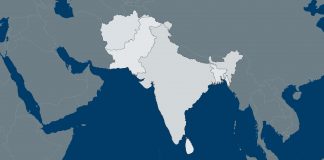By Kamran Bokhari
Summary The threat from transnational jihadism has increased substantially half a decade after U.S. special operations forces killed its principal architect, Osama bin Laden. This speaks volumes about how personalities matter only so much in geopolitics. The Islamic State has exponentially expanded the scope of the war that al-Qaida began in the early 1990s. Eliminating individual leaders can bring about the decline of a group but jihadism is a much broader phenomenon. And it is likely that jihadism will persist long after another group has overshadowed the Islamic State.
Five years ago, U.S. Navy Seals killed Osama bin Laden in his hideout in the northwestern Pakistani city of Abbottabad. After a massive 10-year manhunt, the United States finally succeeded in bringing the main figure behind the 9/11 attacks to justice. By the time bin Laden was eliminated, the original al-Qaida organization had been decimated through the capture and killing of a large number of its political and military leaders. The intelligence that emerged out of the raid of bin Laden’s compound provided evidence for an argument that I and other colleagues had been making for many years: bin Laden and his closest associates had traded away operational control of the organization for physical security.
Al-Qaida had long devolved from a centrally controlled organization to a diffused movement where the various regional nodes of the global jihadist network became far more important than the organization’s core. While still providing strategic guidance and inspiration to the wider movement and even plotting attacks against the United States, its Western allies and many Muslim regimes, bin Laden had been irrelevant for years. The day-to-day decisions and operations were carried out by franchise entities and affiliated groups largely based in the Middle East and South Asia. U.S. intelligence had identified the Yemen-based al-Qaida in the Arabian Peninsula as the most dangerous of all the branches, given that it was engaged in plots to attack the continental United States.
While Washington was focused on destroying al-Qaida, two separate but extremely critical developments were taking shape. First, the Iraqi branch of al-Qaida was evolving into an independent entity that, during the years of the U.S. military occupation, had transformed from a terrorist group into an insurgent force that controlled and administered territory. Second, the Arab Spring led to a meltdown of autocracy in the Arab world, which al-Qaida had long sought but was never able to achieve.
By 2008, the George W. Bush administration had succeeded in turning Iraq’s Sunnis against the Islamic State of Iraq (ISI) – the successor to the Iraqi branch of al-Qaida and the predecessor to the present-day Islamic State. However, the group had put down enough roots that it was able to revive itself shortly after the departure of American troops in late 2011. ISI was able to rise by exploiting the highly sectarian policies of the government of former Prime Minister Nouri al-Maliki. But perhaps the biggest enabling factor was the rapid evolution of civil agitation in neighboring Syria into a full-blown civil war by the end of 2011. ISI had sanctuaries in eastern Syria and was able to quickly take a lead role in the Syrian battlespace, seizing territory that provided it with the strategic depth to revive itself on its home turf in Iraq.
By early 2013, ISI had become ISIS (Islamic State of Iraq and Syria), and formally disassociated itself from al-Qaida. In another year or so, ISIS took the country’s second largest city of Mosul and declared a caliphate, renaming itself the Islamic State. The jihadist movement became a state and its longtime leader, Abu Bakr al-Baghdadi, had assumed the mantle of caliph. In this way, a group that emerged out of al-Qaida had superseded the parent organization.
Bin Laden, after a 25-year career as a jihadist, still hoped that at some future point al-Qaida would be able to establish the caliphate. But al-Baghdadi established it a little over a decade after the first suicide attack in Iraq following the overthrow of the Baathist regime. Al-Baghdadi does not have the stature that bin Laden enjoyed while he was still alive, but his organization has achieved much more than the founder of the transnational jihadist movement thought was possible in the short term. Today, bin Laden and the group he established are relics of the past.
His deputy and successor, Ayman al-Zawahiri, is in hiding somewhere in northwestern Pakistan and has been ridiculed by IS. Al-Qaida is now even more dependent on regional branches to remain relevant. Its main branch, which does not even call itself al-Qaida, is in Syria. Jabhat al-Nusra oscillates between loyalty to al-Qaida’s transnational agenda and its alliance with groups like Ahrar al-Sham, a Salafist-jihadist group whose ambitions are confined to Syria.
While IS is currently the major transnational jihadist force governing territories in the Middle East and engaging in transcontinental attacks in the West and elsewhere, it is not immune to the ravages of geopolitics. Al-Baghdadi will likely meet a fate similar to that of bin Laden and his organization will be overshadowed by another entity in the future.
The war against the Soviets in Afghanistan produced al-Qaida. The U.S. attempt to effect regime change in Iraq and the Arab Spring produced the Islamic State. Today, Saudi Arabia is trying to undermine Iran through its support for the rebellion against the Syrian regime. This will produce new realities and new actors. In the end, geopolitics is not about personalities, organizations and subjective intents. Instead, objective geopolitical realities – an interplay of geography, demography and resources – are what determine capabilities and shape outcomes.






 Special Collection – The Middle East
Special Collection – The Middle East